
THE CONFERENCE OF THE BIRDS FARID UD-DIN ATTAR, the Persian mystic-poet, was born during the twelfth century at Neishapour (where Omar Khayyam had also been born) in northeast Iran. His date of birth is given by different authorities at various times between 1120 and 1157; the earlier date is more likely. He is said to have been educated at the theological school attached to the shrine of Imam Reza at Mashhad (a major centre of pilgrimage) and later to have travelled to Rey (the ancient Raghes, near modern Tehran), Egypt, Damascus, Mecca, Turkestan and India. After his wanderings he settled in his home town, where he kept a pharmacy, and it was there that he wrote his poems. Later in his life he was apparently tried for heresy; the charge was upheld and Attar was banished and his property looted. However, he had returned to Neishapour at the time of his death, which was probably shortly before 1220.
His other chief works are The Book of the Divine, The Book of Affliction and The Book of Secrets. DICK DAVIS was born in 1945 and educated at King's College, Cambridge, where he read English, and at the University of Manchester (Ph.D. in Persian Literature). He lived in Iran for eight years (197078) and has also lived in Italy and Greece. He is Professor of Persian at Ohio State University, USA. He has published six books of poetry, critical works and translations from Italian as well as from Persian. He translated The Legend of Seyavash by Ferdowsi for Penguin Classics, and also edited Edward FitzGeralds Rubaiyat of Omar Khayyam for Penguin.
He is a Fellow of the Royal Society of Literature. AFKHAM DARBANDI was born in 1948 in Tehran, where she grew up. She trained as a nurse and then as a translator. She and Dick Davis were married in 1974. 
FARID UD-DIN ATTAR
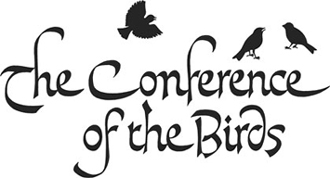 Translated with an Introduction by
Translated with an Introduction by
Afkham Darbandi and Dick Davis PENGUIN BOOKS PENGUIN BOOKS
Published by the Penguin Group
Penguin Books Ltd, 80 Strand, London WC2R 0RL, England
Penguin Putnam Inc., 37 Hudson Street, New York, New York 10014, USA
Penguin Books Australia Ltd, 250 Camberwell Road, Camberwell, Victoria 3124, Australia
Penguin Books Canada Ltd, 10 Alcorn Avenue, Toronto, Ontario, Canada M4V 3B2
Penguin Books India (P) Ltd, 11 Community Centre, Panchsheel Park, New Delhi - 110 017, India
Penguin Books (NZ) Ltd, Cnr Rosedale and Airborne Roads, Albany, Auckland, New Zealand
Penguin Books (South Africa) (Pty) Ltd, 24 Sturdee Avenue, Rosebank 2196, South Africa Penguin Books Ltd, Registered Offices: 80 Strand, London WC2R 0RL, England www.penguin.com This translation first published 1984
28 Copyright Afkham Darbandi and Dick Davis, 1984
All rights reserved Except in the United States of America, this book is sold subject to the condition that it shall not, by way of trade or otherwise, be lent, re-sold, hired out, or otherwise circulated without the publishers prior consent in any form of binding or cover other than that in which it is published and without a similar condition including this condition being imposed on the subsequent purchaser 9780141920955 THIS TRANSLATION IS DEDICATED TO
THE MEMORY OF MARIAM DARBANDI,
19561983

CONTENTS




INTRODUCTION
is the best-known work of Farid ud-Din Attar, a Persian poet who was born at some time during the twelfth century in Neishapour (where Omar Khayyam had also been born), in north-east Iran, and died in the same city early in the thirteenth century. His name, Attar, is a form of the word from which we get the attar of attar of roses and it indicates a perfume seller or druggist.
Attar wrote that he composed his poems in his daru-khan, a word which in modern Persian means a chemists shop or drug-store, but which has suggestions of a dispensary or even a doctors surgery; and it is probable that he combined the selling of drugs and perfumes with the practice of medicine. His date of birth is given by different authorities at various times between 1120 and 1157; modern writers have inclined towards the earlier date. Two manuscript copies of The Conference of the Birds give the date of its completion as 1177, and on internal evidence one would judge it to be the work of a writer well past his youth; this also suggests that a birth-date closer to 1120 than 1157 is likely. He is said to have spent much of his childhood being educated at the theological school attached to the shrine of Imam Reza at Mashhad (the largest town in northeastern Iran and a major centre of pilgrimage), and later to have travelled to Key (the ancient Raghes, near modern Tehran), Egypt, Damascus, Mecca, Turkestan (southern Russia) and India. Such itineraries are common in the lives of Persian poets of this period, and it was clearly usual for them, like their counterparts in medieval Europe, the troubadours and wandering scholars, to travel from place to place in search of knowledge or patronage or both. Attars travels seem to have been undertaken more in the pursuit of knowledge than patronage; he boasted that he had never sought a kings favour or stooped to writing a panegyric (this alone would make him worthy of note among Persian poets).
Though The Conference of the Birds is about the search for an ideal, spiritual king, Attar obviously had a low opinion of most earthly rulers; he usually presents their behaviour as capricious and cruel, and at one point in the poem he specifically says it is best to have nothing to do with them. The knowledge he particularly sought was concerned with the biographies and sayings of Islamic saints; these he collected together in his prose work Tadhkirat al-Auliya (Memorials of the Saints), which became an important source book for later hagiographers. After his wanderings he settled again in his home town, where he presumably kept his daru-khan. There is some evidence that late in his life he was tried for heresy reading The Conference of the Birds it is not difficult to see why, though the accusation was made against a different poem. The charge was upheld, Attar was banished and his property was looted. Edward G. The Conference of the Birds contains many anecdotes about sufis who suffered for their beliefs; and if Attar was attacked for his writings, the experience cannot have been a surprise to him. The Conference of the Birds contains many anecdotes about sufis who suffered for their beliefs; and if Attar was attacked for his writings, the experience cannot have been a surprise to him.
However, he was back in Neishapour at the time of his death, which is variously given as having occurred between 1193 and 1235. One of the dates most favoured among early writers is 1229, the year of the Mongols sack of Neishapour during their devastating sweep westwards, which took them to Baghdad and beyond. If Attar was born around 1120 he would have been well over a hundred years old at this time, and it seems more likely that his biographers have been seduced by the pathetic picture of the saintly old poet butchered by the barbarian hordes than that he actually did live so long. A date shortly before 1220 is more probable, though even this would mean that he was in his nineties when he died. A memorial stone was erected over Attars tomb in the late fifteenth century, and the site is still maintained as a minor shrine.


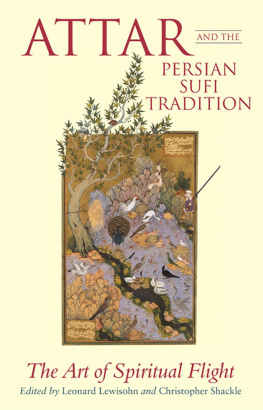

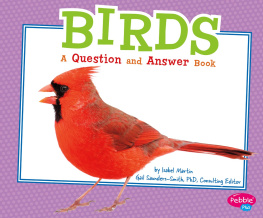

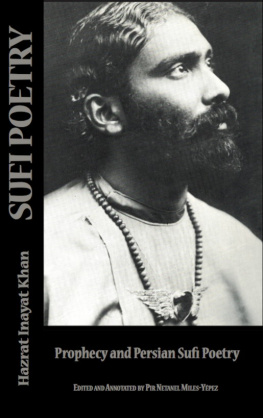
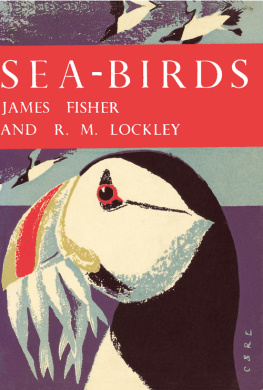

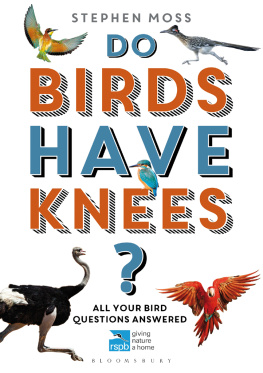
 THE CONFERENCE OF THE BIRDS FARID UD-DIN ATTAR, the Persian mystic-poet, was born during the twelfth century at Neishapour (where Omar Khayyam had also been born) in northeast Iran. His date of birth is given by different authorities at various times between 1120 and 1157; the earlier date is more likely. He is said to have been educated at the theological school attached to the shrine of Imam Reza at Mashhad (a major centre of pilgrimage) and later to have travelled to Rey (the ancient Raghes, near modern Tehran), Egypt, Damascus, Mecca, Turkestan and India. After his wanderings he settled in his home town, where he kept a pharmacy, and it was there that he wrote his poems. Later in his life he was apparently tried for heresy; the charge was upheld and Attar was banished and his property looted. However, he had returned to Neishapour at the time of his death, which was probably shortly before 1220.
THE CONFERENCE OF THE BIRDS FARID UD-DIN ATTAR, the Persian mystic-poet, was born during the twelfth century at Neishapour (where Omar Khayyam had also been born) in northeast Iran. His date of birth is given by different authorities at various times between 1120 and 1157; the earlier date is more likely. He is said to have been educated at the theological school attached to the shrine of Imam Reza at Mashhad (a major centre of pilgrimage) and later to have travelled to Rey (the ancient Raghes, near modern Tehran), Egypt, Damascus, Mecca, Turkestan and India. After his wanderings he settled in his home town, where he kept a pharmacy, and it was there that he wrote his poems. Later in his life he was apparently tried for heresy; the charge was upheld and Attar was banished and his property looted. However, he had returned to Neishapour at the time of his death, which was probably shortly before 1220. 
 Translated with an Introduction by
Translated with an Introduction by CONTENTS
CONTENTS